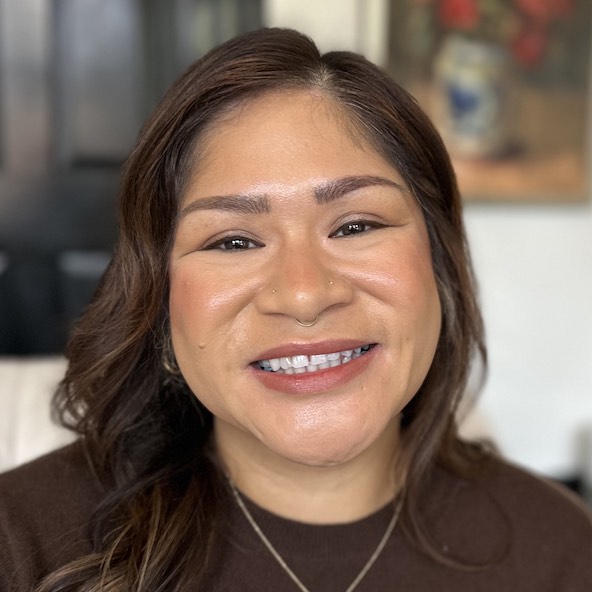
Becoming a parent is a major and profound life change. Though it brings immense joy and a sense of fulfillment, it also comes with considerable changes, some of which can be overwhelming. Many new parents struggle with feeling like they’ve lost a piece of their identity during their transition into this new role. For new parents, all of that dedicated time with a new child can make it hard to recall who they are outside of caregiving.
If you’re feeling this way, know that you aren’t alone and your feelings are completely valid. Acknowledging the way things have changed and allowing yourself to grieve for what you miss is an important step toward embracing this new chapter in your life.
Understanding the Loss of Identity
Before becoming a parent, you may have centered your identity around your career, your passions and hobbies, friendships, or other aspirations. Parenthood can shift your priorities dramatically, though, and these major changes sometimes leave little time for things that once defined you. This can be jarring for new parents, and it often leads to feelings of isolation, worries about being judged, frustration, or even resentment.
It’s important to recognize that losing your sense of self does not mean you love your child any less. Parenthood is quite an adjustment, and there are few others like it. As such, even the most prepared individuals struggle, and that doesn’t mean they’re bad parents, not by a long shot. Instead of feeling like you’ve failed, take some time to explore this new version of yourself. The beginning is very transitional for parents, so try not to be disheartened if things don’t fall into place right away.
Grieving the Change Without Guilt
Grief is a natural part of transition, even when the change is positive overall. Letting go of parts of your pre-parent self does not mean dismissing who you were before. Instead, it encourages you to honor that chapter in your life and take the lessons learned with you while you make space for personal growth.
- Acknowledge Your Feelings: It’s okay to feel a sense of loss, frustration, or even sadness. Suppressing these emotions can make them so much more overwhelming, so do your best to give yourself permission to experience your feelings. After all, no one is in your head with you. Your thoughts are your own, and you don’t have to feel bad about them when they’re personal to you.
- Talk About It: When you feel ready, share your feelings with a trusted friend, partner, therapist, or a parenting support group. Many parents have experienced what you’re going through and speaking openly about them can provide both comfort and perspective.
- Write It Down: Journaling can be a therapeutic way to process your emotions. Reflect on what you miss most about your previous life and explore ways to incorporate elements of it into your current life. This way, you have the opportunity to sort of “talk it out” on paper, where you’re safe to let your feelings flow freely.
- Let Go of Unrealistic Expectations: The pressure to be a ‘perfect’ parent while maintaining every aspect of your pre-baby life is unrealistic. You might see snippets of these instances all over social media, but remember, that is not a reflection of how most people live. Those perfectly made-up parents are manufactured, and those parents struggle just like you do.
Rediscovering Yourself in Parenthood
While some aspects of your old identity may change, this doesn’t mean you have to lose yourself entirely. Parenthood doesn’t suddenly make you a totally different person, but it does present an opportunity to redefine yourself. You can take many of your same values, interests, and expectations with you into parenthood. The goal is to honor both who you were and the parent you’re becoming.
Reconnect with Your Passions
You may not have as much free time as you did before the baby (or babies), but you can still engage in activities that bring you joy. If you love reading, try audiobooks while rocking your little one to sleep. If fitness was a big part of your life, explore parent-friendly workout routines or stroller-friendly walks. If you’re in a somewhat urban area, check your locality’s social media communities. Several neighborhoods have parent groups that might be worth joining.
Set Small, Achievable Goals
Start with small steps that help you feel like yourself again. If you practiced mindfulness before parenthood, try to dedicate 15 minutes a day to meditating (even if it’s less than your normal session). Meet a friend for coffee, or set aside a bit of time for a hobby. You might not get through a whole session without parenthood calling, but these small moments can help contribute to a greater sense of self overall.
Maintain Meaningful Relationships
It’s easy to become consumed by parental responsibilities, but maintaining strong relationships is important. Of course, you may find some of your friends pulling away after you’ve had a child, but interacting with people who truly care for you can help strengthen you as a person, not only as a parent. Support means the world when you’re struggling, so reach out to someone you know will treat you with the compassion you need and deserve.
Prioritize Self-Care
Self-care is often the first thing to be sacrificed as a new parent. It should come as no surprise being that time becomes a bit of a blur during those first few months. However, maintaining your sense of self is essential during a major transition. Even if you can only take a single uninterrupted shower or give yourself five minutes to catch your breath, small acts of self-care can help get you through the day.
Embrace the Evolution of Your Identity
Rather than seeing parenthood as the loss of your identity, try viewing it as an expansion. You are not replacing your old self. You’re still YOU in every sense of the word, you’re just growing into a more multifaceted version of who you are. While you may not have the same freedoms as before parenthood, you also have newfound strengths, insights, and a one-of-a-kind bond with your child.
Seeking Support When Needed
If feelings of loss, anxiety, or identity struggles become overwhelming, seeking professional support can be beneficial. Therapists, parent support groups, and online communities can offer guidance, reassurance, and strategies to make it through this transition. In addition, if these negative feelings linger, a mental health professional can evaluate you for symptoms of postpartum depression and recommend the best possible intervention.
Remember, prioritizing your mental health is not just for your benefit. It also contributes to being a more present and engaged parent.
Adjusting to parenthood is a journey filled with change, growth, and self-discovery. Losing parts of your old identity may feel unsettling, but it is also an opportunity to redefine yourself in a way that lines up with your evolving life. By allowing yourself to grieve the changes and taking it easy on yourself, you can find both confidence and fulfillment in your new role. Remember, there’s no shame in struggling, and there’s certainly no shame in reaching out for help. Caring for another human being is incredibly challenging, so cut yourself some slack and do your best to take each day as it comes.
If you’d like to work through your feelings and experiences with a dedicated therapist, please book an appointment with our office at your convenience.

























